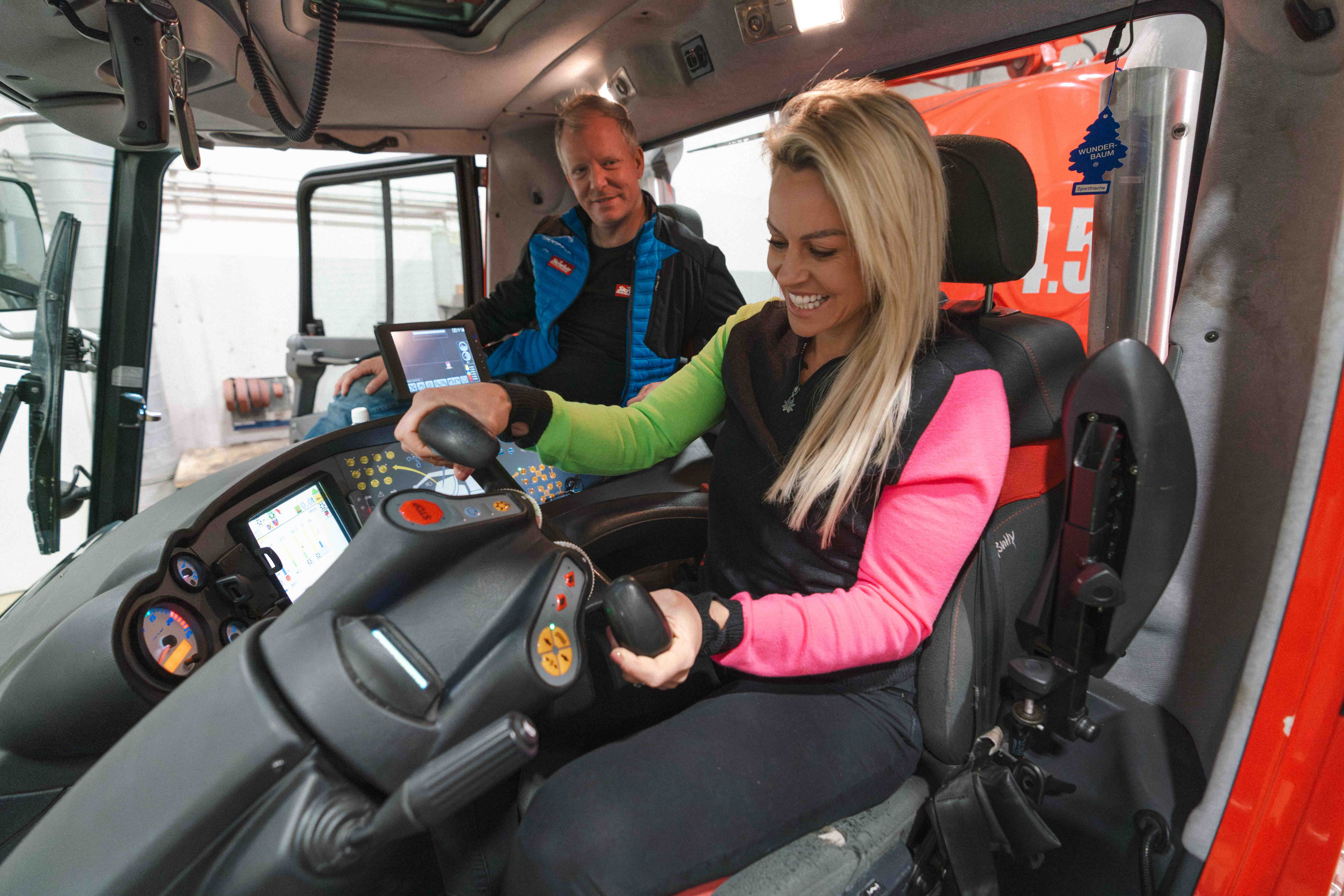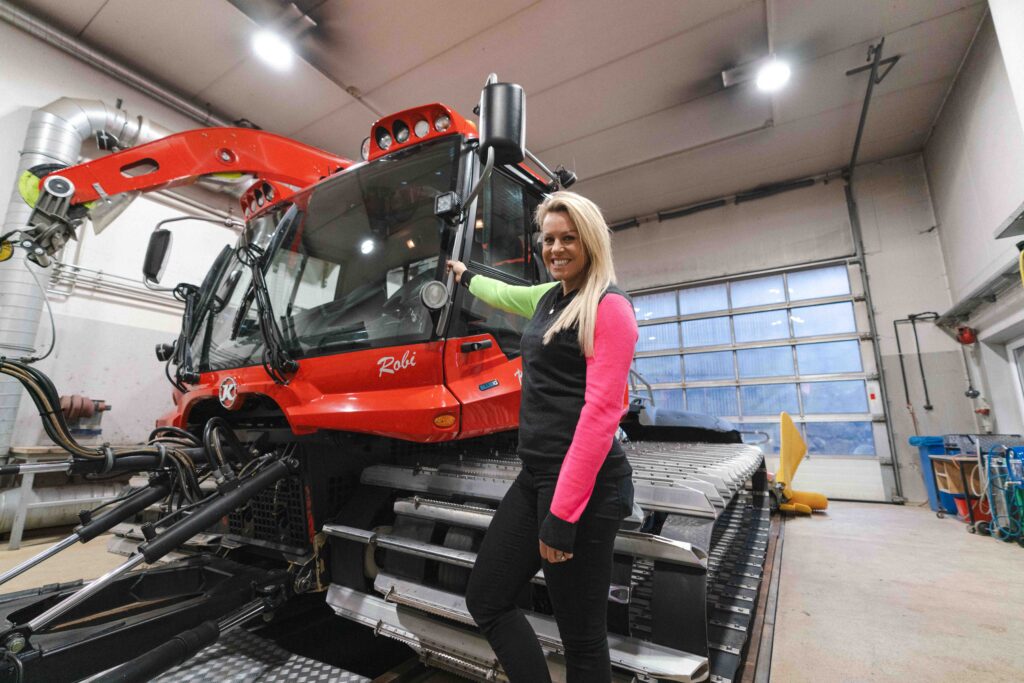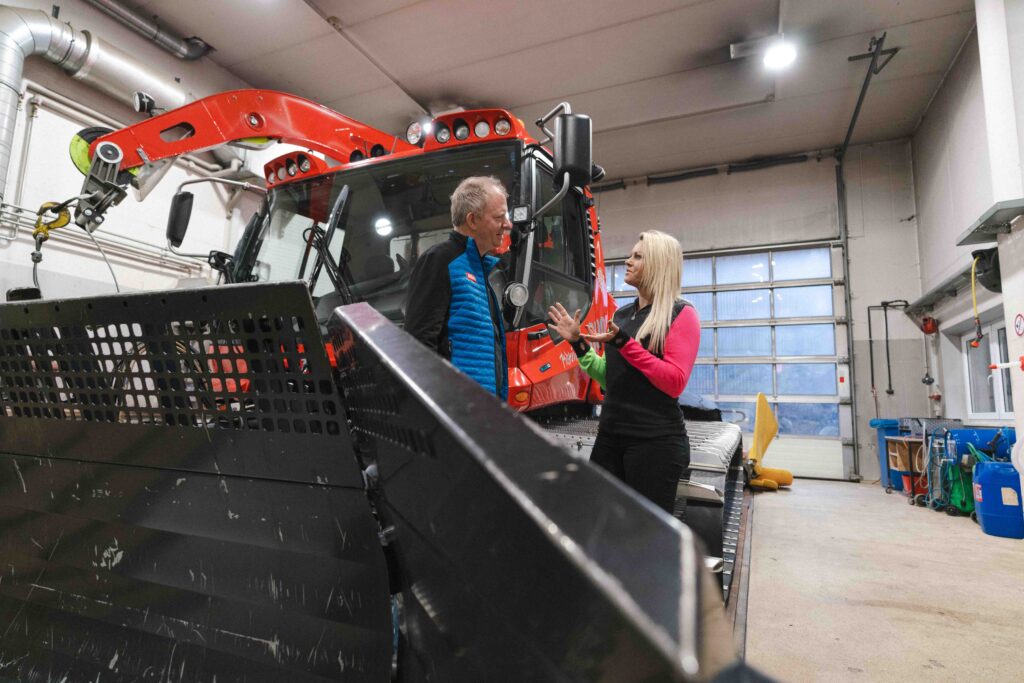Winter the Austrian way | First stop, SkiWelt


Sustainability and winter sports, how can the two co-exist? This is the question Chemmy Alcott is asking as she heads out to discover winter the Austrian way.
The four-time Winter Olympian, BBC Ski Sunday presenter and Protect Our Winters ambassador recently travelled to Austria to learn more about what resorts are doing to combat their impact on the environment.
“Sustainability is a hot topic at the moment, especially when it comes to winter sports holidays,” says Chemmy.
“As ski enthusiasts we want to protect the places that we love. I want my children to live out their love of skiing in winter, and that’s why I’m here in Austria, to look at initiatives to become more sustainable.”
The result of Chemmy’s mission is a series of short videos where she talks to three ‘pioneers of sustainability’ about what initiatives they’ve already implemented, as well as potential improvements for the future.
First, Chemmy travels to the SkiWelt – not only one of the largest, but also one of the world’s most sustainable ski resorts – to uncover all that the ski area does to ensure winter operations are as green as can be.
Here’s a look at what she finds out:
For more than two decades, SkiWelt Wilder Kaiser-Brixental has devoted time, energy and money into reducing its environmental impact, from solar-powered ski lifts to sustainable snowmaking. Its hard work is being noticed – the resort has won multiple sustainability awards for its eco efforts.
❄ SkiWelt installed the world’s first solar lift back in 2008 – the Brixen ‘Sonnenlift’ – and now all 82 of their ski lifts are operated with 100% renewable energy. One gondola station even has a heat-recovery system that is used to heat a nearby mountain restaurant, the Choralpe.
❄ The piste bashers are fuelled with GTL (which releases 90% less CO2 than regular diesel).
❄ Photovoltaic units are to be found increasingly on buildings and lifts across the region. SkiWelt also uses heat pumps to recover waste heat from the slopes, which is then used to heat the lifts and snowmaking machines.
❄ SkiWelt is big on sustainable snowmaking. It has 17 storage ponds, which are filled naturally by the melting snow and rain, which are used for snowmaking.
❄ Since the winter of 2017/18, SkiWelt’s piste bashers have been equipped with a sophisticated GPS snow-measurement system; this allows drivers to know the exact snow depth on a piste, so they can work even more precisely, as well as saving a great deal of technically produced snow.
“The aim is to have an evenly distributed layer of snow on the slopes. For our guests, this means perfectly groomed and snow-sure slopes until the end of the season,” says Stefan Grafl, CEO of cable car company Westendorf.
Check back in soon for the next installation of ‘Winter the Austrian Way’ as Chemmy heads to Seefeld on the next leg of her eco fact-finding mission.


“Winter sports and snow go inseparably together, but is that sustainable?” asks Chemmy.
While travel and ski holidays will always come with a carbon footprint, there is a lot you can do to contribute towards sustainability and climate protection.
Here are some tips:
For more information visit the Austria website.